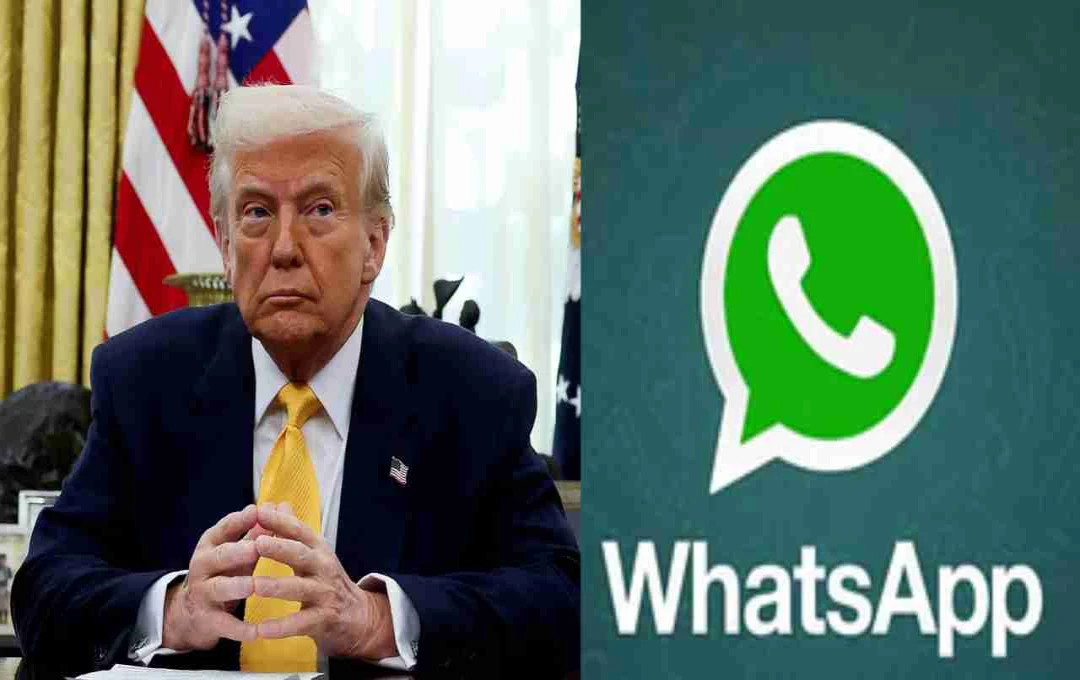U.S. House Restricts Government Use of WhatsApp Due to Security Concerns
The U.S. House of Representatives has banned the use of WhatsApp on government devices, citing security concerns. The popular messaging app has received a significant setback in America, as it is now prohibited from being used on devices used by personnel within one of the country’s most sensitive institutions – the House of Representatives, the U.S. Congress.
The decision, which labels WhatsApp as a ‘high-risk application,’ signals a shift in U.S. tech policy and presents a major challenge for giants like Meta.
What’s Happening?
Following directives from the House of Representatives’ Chief Administrative Officer (CAO), all government devices – whether mobile or computer – connected to the institution are now prohibited from installing or accessing WhatsApp, either through the app or its web version.
The CAO’s cybersecurity branch has identified WhatsApp as a ‘high-risk’ application due to perceived shortcomings in its data security policies.
Alternative Applications Recommended
Government employees are being advised to use the following applications instead of WhatsApp:
- Microsoft Teams
- Signal
- iMessage
- FaceTime
- Viber
These alternatives are considered more transparent and reliable in terms of data security.
Meta Expresses Opposition

Meta, WhatsApp’s parent company, has expressed its dissatisfaction with the ban. Spokesperson Andy Stone posted on social media platform X (formerly Twitter) stating that they disagree with the characterization of WhatsApp. He emphasized that all WhatsApp messages are end-to-end encrypted by default, making unauthorized access impossible.
Stone asserts that WhatsApp’s security system is more robust than that of other applications and adheres to global standards for protecting user data.
Connection to WhatsApp’s Advertising Policy?
Notably, just days before this ban, WhatsApp announced plans to introduce advertising on its platform. However, there’s no direct link between this restriction and the advertising policy. Nevertheless, analysts believe that for Meta, as the U.S. is its largest market, any government rejection could be a significant loss.
Questions Raised About WhatsApp’s Security

Despite Meta’s consistent advocacy for the security and privacy of its platform, WhatsApp has faced scrutiny regarding data sharing and tracking policies in several countries over the past few years. Investigations into user data have also been conducted in countries including India. The U.S. House’s decision could impact WhatsApp’s global image, particularly in institutions where security is a top priority.
Why This Decision Matters
With thousands of employees in the House of Representatives, instructing these personnel not to use WhatsApp represents a heightened level of caution regarding cybersecurity by the government. This decision may prompt other government institutions worldwide to consider similar measures.
What Might Happen Next?
Tech experts believe that this ban will not immediately affect WhatsApp’s general users. However, if other U.S. agencies or countries follow suit, it could pose a significant threat to WhatsApp. Furthermore, Meta may face increased global pressure to enhance transparency and data privacy policies. The company will likely need to present its security policies in a more explicit manner moving forward.













